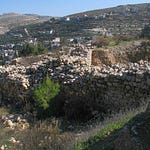The final act of the exodus from Egypt is the miraculous splitting of the Red Sea. How do we relate to miracles in a scientific age? What is our approach to the miraculous?
תלמוד בבלי – שבת קיח עמוד ב
א״ר יוסי יהא חלקי מגומרי הלל בכל יום איני והאמר מר הקורא הלל בכל יום הרי זה מחרף ומגדף כי קאמרינן בפסוקי דזמרא.
Gemara Shabbat 118b
Rabbi Yosei said: May my portion be among those who complete hallel every day. The Gemara is surprised at this: Is that so? Didn’t the Master say: One who reads hallel every day is tantamount to one who curses and blasphemes God. He displays contempt for hallel by not reserving it for days on which miracles occurred. The Gemara answers: When we say this statement of Rabbi Yosei, we are referring to the verses of praise [pesukei dezimra], recited during the morning service, not to hallel (Psalms 113–118) recited on special days.
The Talmud quotes the opinion of Rabbi Yose, who states that he wishes to be among those who recite Hallel daily. A contradiction to this opinion is introduced in the text, stating that those who recite Hallel daily belittle and blaspheme [the Almighty]. The Talmud reconciles this contradiction by distinguishing between two distinct meanings of the term Hallel, praising the miraculous. Rabbi Yose was referring to the praise recited as part of the daily prayer service known as Pesukei de-Zimrah. The contradictory opinion was discouraging the recitation of the special praise reserved for holidays known as Hallel ha-Mitzri.
The Rav, Rabbi Joseph B. Soloveitchik, elucidates these two types of Hallel or praise. The first type of praise, advocated by Rabbi Yose, refers to an appreciation of the awe-inspiring and miraculous natural world around us. The second type of praise, criticized as belittling, refers to the daily praise of miraculous departures from reality or suspensions of the natural order.
Rabbi Joseph B. Soloveitchik - Seders of Denigration and Praise
Pesukei de-Zimrah…is the Hallel for the cosmic drama, for organic life and inorganic matter, the astral world, heaven and earth, the seas and forests—essentially, for nature. Hallel ha-Mitzri (recited on holidays), on the other hand, gives expression to our specific relationship with God, to the miracles that took place not in natural processes—the cosmic drama and the rules of nature—but in specific miracles that defeated cosmic causation. It refers to the miracles responsible for the emergence of the covenantal community and the unique, singular relationship between Israel and God—the exodus from Egypt and God’s revelation throughout our history.
A person who says Hallel ha-Mitzri every day is a blasphemer, because this indicates that he believes one can see God only through miracles, only when He acts contrary to the established cosmic order, while the natural world remains an empty mechanical affair. The daily recitation of Pesukei de-Zimrah, on the other hand, affirms that one finds God’s glory manifest and reveals through the cosmic order, through the regularity of nature and the harmony of the spheres, through the starlit heavens and the blossoming trees. (p.111)
Rav Soloveitchik notes that Judaism is not a religion founded upon singular miraculous experiences. A religion based on the supernatural cannot survive in the natural world. Only a religion that provides a framework for everyday reality can sustain itself from generation to generation. Thus the Talmud criticizes an overemphasis on the miraculous. Turning the miraculous into a religious philosophy is antithetical to Judaism. It belittles rather than glorifies, for the order present in the natural world is far more awe-inspiring than the intermittent suspension of this order.
What then is the import of the miraculous? The Ramban addresses this question in his commentary on the Torah, as he discusses the ideas behind the mitzvah of Tefillin.
רמב"ן שמות יג:טז
ומן הנסים הגדולים המפורסמים, אדם מודה בנסים הנסתרים שהם יסוד התורה כלה
Ramban Shemot 13:16
From the openly miraculous, a person comes to appreciate the subtly miraculous, which is at the foundation of the entire Torah.
The momentary suspension of a natural law ultimately elicits an appreciation of the miraculous character of the perfectly functioning system of nature. This inspired perception is a superior realization of the Divine role in the natural world. The ideal religious experience is reaching an understanding and awe of the natural laws of the universe. This is indeed the approach advocated by Rabbi Yose in the Talmud, which was codified into the daily morning service (in Psalms 145-150). King David’s portrayal of the awe that results from the observation of the natural world is indeed humbling and moving. Alternatively, as the Talmud points out, praising the miraculous occurs at intermittent intervals, only on specific celebrations such as Passover. A sprinkling of the miraculous can be inspirational, but it is not designed to be a primary basis of our religious philosophy. The response to the suspension of the laws of nature must yield to an appreciation of the vast and awesome systematic order present in the universe.
The Nobel laureate physicist Richard Feynman beautifully describes the vast depth hiding just beneath the surface of the seemingly mundane:
Richard P. Feynman - The Relation of Physics to Other Sciences
If you look at a glass of wine closely enough, you will see the entire universe…The twisting liquid, the reflections in the glass, and our imagination adds the atoms. It evaporates depending on the wind and weather. The glass is a distillation of the earth's rocks, and in its composition, [we see] the secrets of the universe's age, and the evolution of the stars.
Anyone can be moved by witnessing the ten plagues or the splitting of the red sea. But it requires a different outlook to be moved by everyday phenomena. Our ultimate objective is an appreciation of the Divinity implanted within everyday life. The Torah does recount specific miracles. But these miracles in turn orient us towards the magnificence and elegance of the natural world in which we live, reminding us that it too is miraculous.

References
Feynman, R. (10/3/1961). The Relation of Physics to Other Sciences [Lecture Recording 52:20]. California Institute of Technology. Retrieved from: https://www.feynmanlectures.caltech.edu/I_03.html
Soloveitchik, J. D. (2006). Festival of freedom: Essays on Pesah and the Haggadah. Jersey City, NJ: Published for the Toras HoRav Foundation by KTAV Pub. House.
Translation of the Talmud from The William Davidson digital edition of the Koren Noé Talmud, with commentary by Rabbi Adin Steinsaltz Even-Israel (CC-BY-NC 4.0), digitized by Sefaria. Retrieved from: https://shas.alhatorah.org/Full/Shabbat/118b.4#e0n6














Share this post